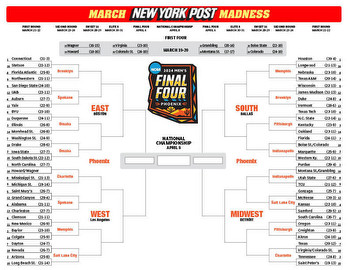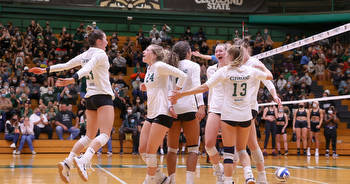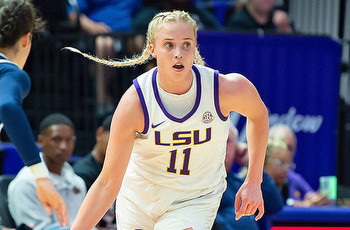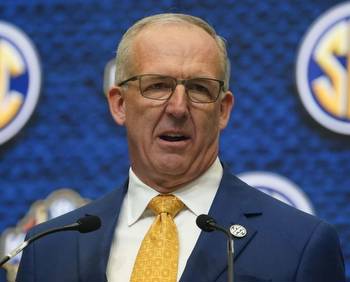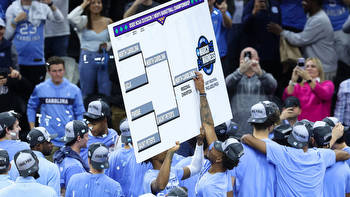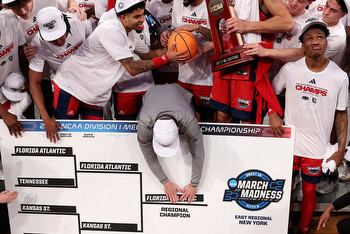NCAA Tournament expansion talk highlights leaders' absurdity
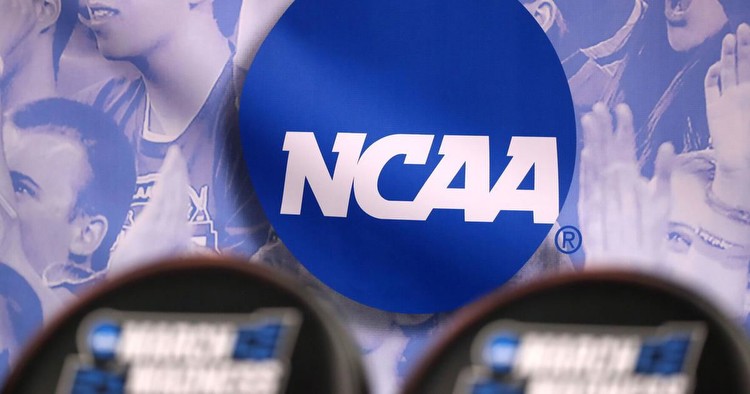
Something awfully persuasive just occurred in the college basketball world.
Coaches, followed by the sport’s talking heads, followed by sports writers and so on, decided almost unanimously that college students storming the court after a big win was suddenly too dangerous and had to be stopped.
It’s remarkable what can occur when all of the thought makers and shapers in the same industry find the same page and read from it at once, with gusto.
It almost made me forget that rambunctious collegians have been celebrating with student-athletes on the hardwood for years and that the two rare examples of minor injury scares in court-storming settings this season, first to Iowa women’s star Caitlin Clark (who on Thursday declared she would leave Iowa after this season for the WNBA) and second to Duke star Kyle Filipowski, turned out to be, well, not very serious at all.
The outcry over a problem none of us viewed as much of a problem a month ago made me wish there could be the same kind of momentum generated to combat a very real threat coming for this sport.
It’s not students sprinting out from the bleachers.
It’s college basketball power brokers ruining this magic month of March.
Enjoy March Madness this season, folks, because the headlines about what’s coming are grim, and nobody with enough juice to make much of a difference seems willing to raise heck about how this is trending.
Even chief bracketologist himself Joe Lunardi is spinning what they’re selling.
“The case for expanding the men’s NCAA tournament to 80 teams,” he writes at ESPN.com.
Some are even calling for 90-plus teams, after something called the NCAA Transformation Committee recommended each sport’s governing body expands to include 25% of the Division I field.
It’s inevitable, we are being told at an increasing and alarming rate, that the NCAA Tournament will expand from its current 68-team format.
Another sign was NCAA president Charlie Baker going to bat for bracket expansion during an interview with ESPN.
“Most of the people who follow college sports think the NCAA Tournament in basketball is perfect, right?” Baker said. “So anything that’s done to change it needs to be done with care and consideration.”
That right there underscores the lunacy of our modern college athletics leaders. If there’s more money to be gained in the change, no change is off limits. Rapid fire cycles of conference realignment combined with massive TV rights deals combined with the realization of what players could one day be owed if they become team employees are all pushing CEO-type conference commissioners deeper into overdrive.
Nothing is safe. Common sense? It left the conversation via the transfer portal long ago.
The 12-team College Football Playoff is considering growing to 16 teams before we even see the first edition of 12. On that, who cares? College football’s postseason has been searing for what’s right forever. The quest continues.
But expanding the NCAA Tournament? Bringing up the topic should get rotten vegetables tossed in your direction. But it doesn’t, and we’re not talking about whispers anymore.
Baker didn’t even seem to realize he gave the wrong answer to his hypothetical question. If you have something everyone thinks is perfect, you don’t change a thing. Non-problem solved.
No one who wouldn’t benefit financially from NCAA Tournament expansion wants to see the college hoops postseason altered. The current 68-team tournament is a beloved staple in the sports world. It offers the perfect and familiar blend of heavyweights and underdogs in a one-page printout that dictates our emotions for a month. It doesn’t need to be fixed. It needs to be protected.
And please, don’t get fooled about NCAA Tournament expansion making more room for the kind of Cinderella stories we love to see take their shot every season. Each one of those small-conference miracles knows exactly what they must accomplish to secure their shot at March Madness, and they’re fine with it. They have to win their conference tournament and can’t feel safe about anything unless they do. If this grow-the-bracket talk was really about creating room for more underdogs, I’d listen. It’s not.
No, this bracket expansion narrative is being driven by the side of the evil stepmother instead. The biggest, strongest conferences are leaning on the NCAA to create more March Madness slots for mediocre teams from the big, strong conferences. That’s why you hear the same view from SEC commissioner Greg Sankey as you do ACC commissioner Jim Phillips as you do Big 12 commissioner Brett Yormark. They are all for “more access” to March Madness. Their leagues cram teams into the tournament every year, but it’s not enough. It’s never enough. Not even after the past five NCAA Tournaments, per Mike DeCourcy of The Sporting News, committed an average of 30.4 of the available 36 at-large bids (84.4%) to teams from the SEC, Big Ten, ACC, Pac-12 and Big East.
Even more mediocre big-conference teams will mean a smaller percentage of small-conference Cinderellas in the NCAA Tournament field and, due to the required bracket restructuring, a more difficult road for the Davids to get a good shot at a Goliath, like when No. 16 seed UMBC stunned No. 1 Virginia in the first round of 2018.
The bigger the NCAA Tournament bracket gets, the more meaning the regular season loses. The NCAA Tournament bubble would become forgiving enough that big-conference teams hovering around .500 (and with losing conference records) would be feel relatively safe instead of sweating it out game by game. That’s who would benefit. Teams like the SEC’s Texas A&M (15-13, 6-9 SEC), not like the Missouri Valley’s Drake (24-6, 15-4 MVC).
The College Football Playoff could search for years and never find a setup as perfect as March Madness. Fixing what isn’t broken is bad enough. Spoiling something perfect to create more room for the mediocre is so much worse. If only there was a court we could storm to make our point.








